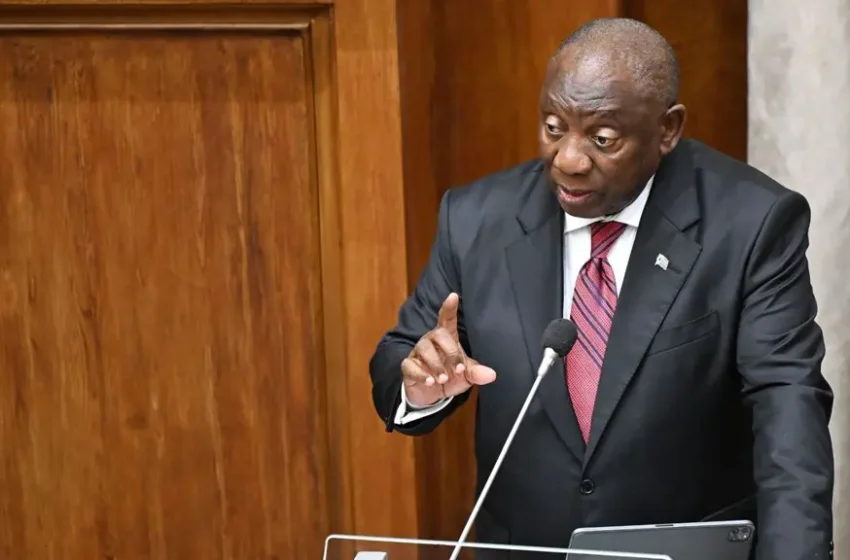South Africans still waiting as government remains silent on petrol price relief

South African President, Cyril Ramaphosa
South Africans are feeling the weight of high fuel prices, even as global market conditions have begun to favour potential relief. Despite falling international oil prices and a relatively stable rand, the government has not taken any concrete steps to ease the cost burden at the pumps.
This silence has drawn growing criticism from industry experts, economists, motorists, and advocacy groups, all questioning why relief isn’t reaching the public.
Over the past few months, Brent crude prices have declined from earlier highs to around $66 per barrel, while the rand has shown signs of recovery against major currencies. These global trends typically indicate the possibility of local fuel price drops, offering much-needed breathing space for motorists and businesses.
However, despite these favourable developments, pump prices in South Africa have only slightly decreased, and the overall relief remains marginal.
A significant part of the problem lies in the structure of South Africa’s fuel pricing system. Taxes and levies—such as the General Fuel Levy (GFL), Road Accident Fund (RAF) levy, and other charges—form a substantial part of every litre of petrol or diesel sold.
As of 2025, motorists are paying over R6 per litre in levies alone, making up nearly 30% of the total fuel cost. Even when the basic fuel price drops, these levies remain unchanged, eating into any potential consumer benefit.
The most recent national budget saw the GFL increased by 16 cents per litre, while the RAF levy rose by 2.18 cents. Despite public outcry and growing frustration over the rising cost of living, the government has offered no indication of reversing these increases or temporarily suspending any levies.
This decision has frustrated many South Africans who feel their government is not doing enough to support them during economically challenging times.
Organisations such as the Automobile Association (AA), the Organisation Undoing Tax Abuse (OUTA), and the Centre for Scientific and Industrial Research (CSIR) have repeatedly called on the government to reconsider the way fuel prices are regulated.
Proposals have included reducing or capping fuel levies, restructuring the pricing formula, and even introducing targeted subsidies for low-income groups who are disproportionately affected by high fuel costs.
While Energy Minister Gwede Mantashe has previously mentioned the possibility of reviewing the levy structure, no formal policy or timeline has been presented. In the meantime, motorists continue to pay elevated prices while awaiting decisive government action. The silence from the Treasury and the Department of Mineral Resources and Energy has further stoked public resentment and distrust.
Adding to the complexity is the government’s cautious approach to selling strategic crude oil reserves. Officials have said they plan to hold off until global oil prices rise above $100 per barrel to ensure maximum returns. This cautious stance, while fiscally prudent, has sparked debate about whether revenue from reserve sales could be redirected to offer temporary relief at the pumps or help finance a fuel levy suspension.
The broader economic impact of persistently high fuel prices is also cause for concern. Transport costs remain elevated, feeding into inflation, particularly in food and logistics sectors. For small businesses and working-class households, fuel expenses are eating into disposable incomes, forcing lifestyle adjustments and reducing purchasing power.
While South Africans have experienced some fuel price drops—around R2.90 per litre in total over recent months—experts warn that these are modest gains that fail to reflect the full potential of current international market conditions. Without structural reform or temporary fiscal interventions, fuel price relief may remain superficial.
As the pressure mounts, all eyes will be on the Treasury, the Department of Energy, and Parliament. Will the government continue to rely on fuel levies as a source of revenue, or will it prioritise consumer welfare and economic stimulation? For now, the silence is deafening—and the tanks are running low on public patience.

